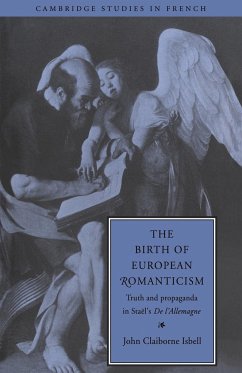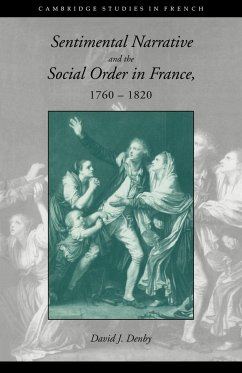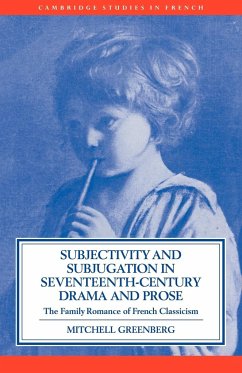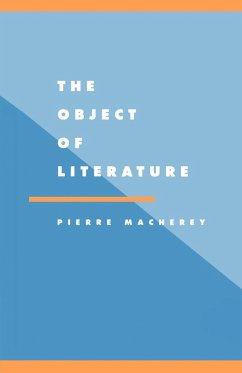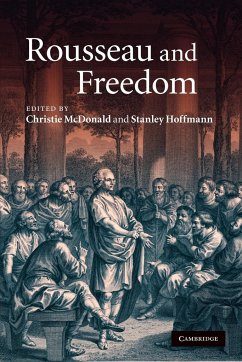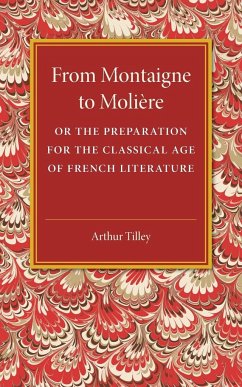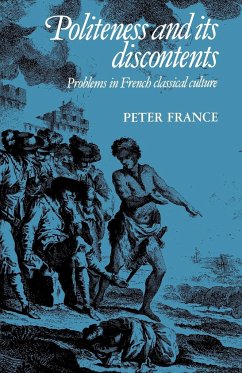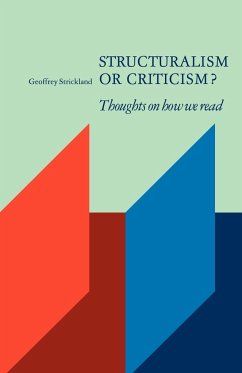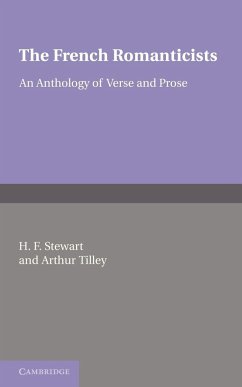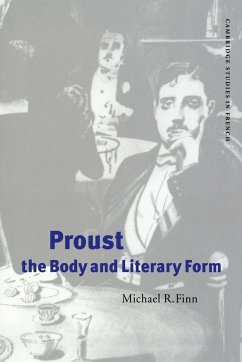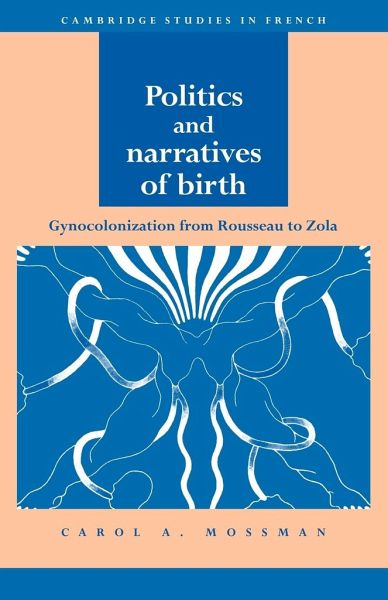
Politics and Narratives of Birth
Gynocolonization from Rousseau to Zola

PAYBACK Punkte
21 °P sammeln!
A feminist analysis which combines a psychoanalytic perspective on catastrophic birth with the politics of reproduction in the emergent democracy of nineteenth-century France.This book is a feminist analysis which combines a psychoanalytic perspective on catastrophic birth with the politics of reproduction in the emergent democracy of nineteenth-century France. It focuses on three major thinkers whose personal relation to origins is problematic, Rousseau, Constant and Stendhal, and also includes a broad reading of the nineteenth-century novel within the frame of pathological generation, giving...
A feminist analysis which combines a psychoanalytic perspective on catastrophic birth with the politics of reproduction in the emergent democracy of nineteenth-century France.
This book is a feminist analysis which combines a psychoanalytic perspective on catastrophic birth with the politics of reproduction in the emergent democracy of nineteenth-century France. It focuses on three major thinkers whose personal relation to origins is problematic, Rousseau, Constant and Stendhal, and also includes a broad reading of the nineteenth-century novel within the frame of pathological generation, giving special attention to works by Michelet and Zola. Professor Mossman identifies important areas of interaction between production and reproduction at the level of aesthetic form and between private, birth-related discourse and the ideology of the birth of democracy. Within the context of the collapse of Ancien Régime France, the nascent ideology of motherhood collides with modes of discourse that invade and colonize the maternal body, generating a considerable burden of anxiety expressed in the nineteenth-century French novel.
Review quote:
"Mossman's presentation, while demanding, rewards the reader by providing an innovative contribution to feminist criticism. Her study has the merit of introducing a measure of balance to traditional interpretations of nineteenth-century fiction that focus on the father."
Hollie Markland Harder, Nineteenth-Century French Studies
Table of contents:
Acknowledgements; A note on translations; Introduction: conception of this book; Part I. Stendhal: Delivering a Plot: 1. Death and transfiguration in the Vie de Henry Brulard; 2. Palimpsest and pregnancy: reading across Stendhalian autobiography; 3. Stendhalian fictions: plotting the unspeakable; Part II. Production, Reproductions and Narrative Form: Adolphe: 4. Introduction; 5. The economy of production: the paternal and narrative form; 6. Reproduction: (de)composing mother; 7. Rebirth and the performance of matricide; Part III. Gynocolonization: Rousseau, Michelet, Zolar and the Nineteenth-Century French Novel; Section 1: 8. Introduction: toward a bodied politics; 9. For unto us a son is born: Emile; 10. Birthing the body politic: Du contrat social; 11. The politic in the body Rousseau: Emile revisited and 'La Reigne Fantasque'; Section 2: 12. Introduction: birth, motherhood and the disease of democracy; 13. The flesh made word: Enfants du siècle and pathologies of reproduction in the nineteenth-century French novel; 14. Liberty, equality, maternity: Michelet as body snatcher; 15. Into Africa: Zola and gynocolonization; Conclusion; Notes; Bibliography; Index.
This book is a feminist analysis which combines a psychoanalytic perspective on catastrophic birth with the politics of reproduction in the emergent democracy of nineteenth-century France. It focuses on three major thinkers whose personal relation to origins is problematic, Rousseau, Constant and Stendhal, and also includes a broad reading of the nineteenth-century novel within the frame of pathological generation, giving special attention to works by Michelet and Zola. Professor Mossman identifies important areas of interaction between production and reproduction at the level of aesthetic form and between private, birth-related discourse and the ideology of the birth of democracy. Within the context of the collapse of Ancien Régime France, the nascent ideology of motherhood collides with modes of discourse that invade and colonize the maternal body, generating a considerable burden of anxiety expressed in the nineteenth-century French novel.
Review quote:
"Mossman's presentation, while demanding, rewards the reader by providing an innovative contribution to feminist criticism. Her study has the merit of introducing a measure of balance to traditional interpretations of nineteenth-century fiction that focus on the father."
Hollie Markland Harder, Nineteenth-Century French Studies
Table of contents:
Acknowledgements; A note on translations; Introduction: conception of this book; Part I. Stendhal: Delivering a Plot: 1. Death and transfiguration in the Vie de Henry Brulard; 2. Palimpsest and pregnancy: reading across Stendhalian autobiography; 3. Stendhalian fictions: plotting the unspeakable; Part II. Production, Reproductions and Narrative Form: Adolphe: 4. Introduction; 5. The economy of production: the paternal and narrative form; 6. Reproduction: (de)composing mother; 7. Rebirth and the performance of matricide; Part III. Gynocolonization: Rousseau, Michelet, Zolar and the Nineteenth-Century French Novel; Section 1: 8. Introduction: toward a bodied politics; 9. For unto us a son is born: Emile; 10. Birthing the body politic: Du contrat social; 11. The politic in the body Rousseau: Emile revisited and 'La Reigne Fantasque'; Section 2: 12. Introduction: birth, motherhood and the disease of democracy; 13. The flesh made word: Enfants du siècle and pathologies of reproduction in the nineteenth-century French novel; 14. Liberty, equality, maternity: Michelet as body snatcher; 15. Into Africa: Zola and gynocolonization; Conclusion; Notes; Bibliography; Index.





